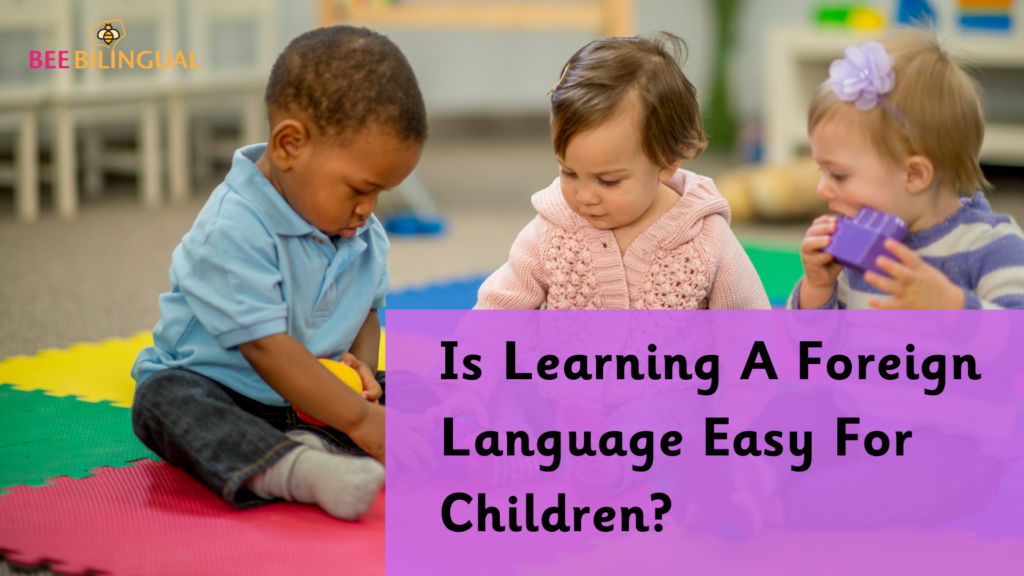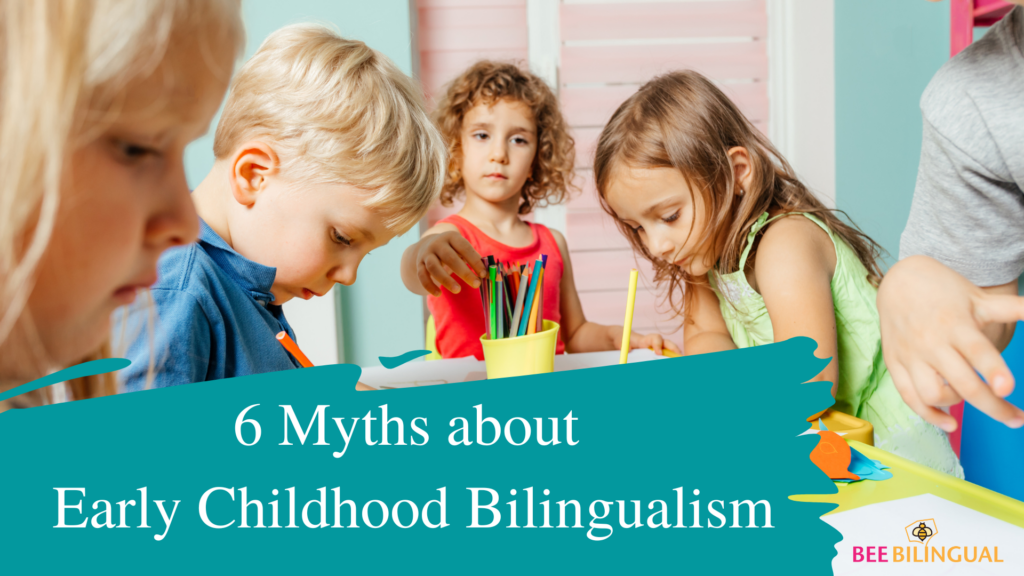One question that I’m being asked quite often is whether it is easy for children to learn a foreign language. The answer is difficult. Although I totally agree that children can often absorb aspects of a language quite quickly, I find the general assumption that “young children are like sponges” difficult. I have seen how bilingual children severely struggle later in primary school with their literacy skills. And let’s remember that our literacy skills influence all aspects of learning! It is important to acknowledge that bilingual children come from different backgrounds and that the quality of teaching in nursery schools, the home environment, additional language support, and general second and home language exposure can have an incredibly big impact on children’s second language learning development.
With this in mind, let’s take a look at…
Why Children Often Find It Easier Than Adults to Learn A Foreign Language
Constantly absorbing information
Children absorb information incredibly quickly; they even absorb information without being aware of it. Their brains are wired this way! Young kids have a cognitive advantage when it comes to learning a new language. New neural connections are being formed all the time and very quickly. Their brains are incredibly efficient, so to speak. Nurtured neural ‘language’ connections might even improve their language learning abilities as adults.
Less complicated and more spontaneous
Kids learn new words and associate them with meanings. When we think about language learning in this way, it seems reasonably straightforward.
On the other hand, as adults, we are suddenly faced with a lot of grammar—there are so many rules and so many words to remember! This obviously makes learning a second language much more difficult.
But remember: As a very young child, there is much less to learn in terms of the complexity of a language itself. Sentence structures are often simpler too; certain words are used repeatedly.
Even when we learn a new language now, repetition is key. This is also the case with young kids! Often, at home or in nursery school, the same songs, sentences and words are used on a regular basis. So basically, young children are not aware of using new language rules, for example, when they are playing games with other kids in nursery school. By repeatedly playing these sort of games, they unconsciously repeat these newly learned language rules.
Another factor is that children learn language much more spontaneously. The second, or foreign language is absorbed through passive listening. As mentioned before, they learn with the help of their unconscious memory system! Which leads us to the next point…
Less Self-Conscious
Very young kids are also not afraid of what other kids or adults think. They are often not very self-conscious, which makes it easier for the brain to absorb language. They make mistakes but don’t care! As adults, we often worry an awful lot about what other people think of us when we speak a second language.
Immersion
Especially when it comes to second language learning, very young children are often more exposed to the second language, whether it is spoken at home or only in nursery school. Because of their lack of inhibitions, young kids make mistakes without becoming anxious. For us adults, it is much more difficult to immerse ourselves in a new world and a new language. Time and perhaps fear play an important role in this.
When does it start to get more complicated?
It is believed that around the age of 12, foreign language learning gets more difficult. This is when our conscious memory system begins to develop much more.
No matter what age we are, learning a language is never easy. Although bilingual kids often absorb language more quickly, as educators and parents we have to make sure that all aspects of their second and home language are supported, whether it is through additional support and high-quality teaching or specific home language support from parents for their children.



